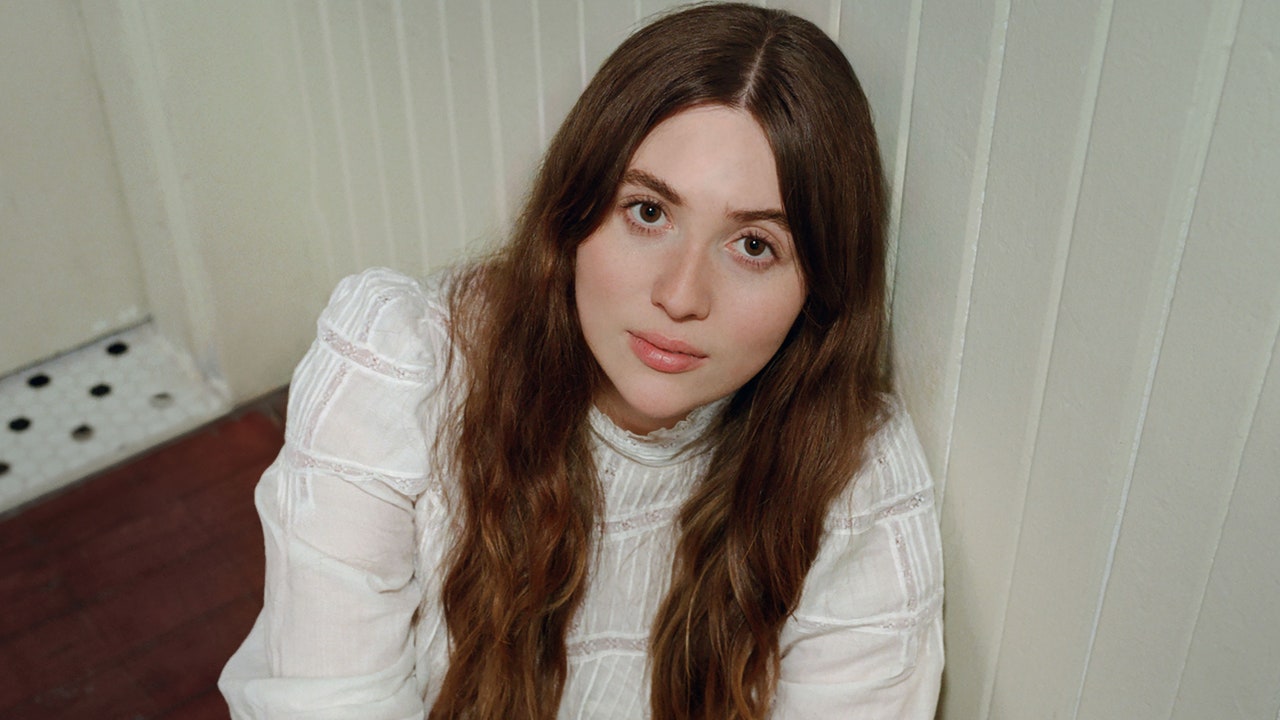Honor Levy, 26, is backlit on a Zoom screen by the midday California sun. A teddy bear is propped behind her. She’s wearing an oversized black T-shirt that, she shows me, reads “Undruggable Unshockable Unstoppable.” She no longer vapes, she says as she leans over to do something “disgusting” with a Lucy nicotine pouch, not quite entirely out of view of her computer camera. This was eons ago. At the beginning of May. The day before Levy, whose Instagram handle is @victim0_o, became the subject of vitriol in a particular corner of the internet.
Before that, she was a child growing up in Los Angeles. She attended Bennington College because she loved Donna Tartt’s The Secret History, and Bret Easton Ellis, and thought Vermont was one of the most beautiful places she’d ever seen. NY Tyrant published one of her short stories just over a week before her college graduation; The New Yorker published her flash fiction the following July. She tumbled about 190 miles south, into downtown Manhattan’s Dimes Square and the pages of The New York Times.
She amassed a collection of other Instagram handles: @abuser0_o, @survivor0_o, @accuser0_o, @enabler0_o, @martyr0_o, @witness0_o. She had plans to publish a book with Tyrant Books, but then its founder, Giancarlo DiTrapano, died. She converted to Catholicism and was quoted some more, including in this magazine, in which she spoke of her friendliness with New Right frontman Curtis Yarvin and an okay-ness (purely hypothetical) with accepting money from Peter Thiel. She cohosted and then laid to rest a podcast called Wet Brain, on which, for a cumulative 35 hours, she rang up friends and acquaintances; brought up Discord, visiting Roosevelt Island with her dad, and a white supremacist dog whistle; and said things like, “Jesus died for me to have premarital!” Then her agent sold her book to Penguin Press. In 2023, after seven years on the East Coast and one bad breakup, she moved home to LA, into her new boyfriend’s apartment in “the flat part” of Beverly Hills. “It’s 90212,” she says, “so I got to keep grinding.”
Tomorrow, My First Book, her first book, comes out. Which was the reason for the interview in New York magazine’s The Cut, which was the catalyst for the ensuing internet ire. “Very boring for somebody in the NY lit scene to interview their friend about their debut book and write about how they’re the voice of their generation, yet again, because they write in updated-alt-lit-internet-speak,” one person declared; another called it “an accidental hit piece.” (Brock Colyar, the Cut writer, had blurbed Levy’s book, calling it “brilliant.”) Others did not like that Levy’s mother is a Hollywood makeup artist, though they kind of liked that her father directed a slate of B movies in the 1990s. Someone expressed confusion: Wasn’t she openly racist? Someone said that 26-year-olds shouldn’t write memoirs. (Her only book is a short story collection.)
Many took issue with this paragraph quoted in the New York Times review:
He was giving knight errant, organ-meat eater, Byronic hero, Haplogroup R1b. She was giving damsel in distress, pill-popper pixie dream girl, Haplogroup K. He was in his fall of Rome era. She was serving sixth and final mass extinction realness. His face was a marble statue. Her face was an anime waifu. They scrolled into each other.
Taste is subjective, but this, surely we can agree, is funny, is satire.
Our conversations evoke the discombobulating referential experience of browsing on a social media platform. During our first 90-minute Zoom, she mentions: Kathy Acker, H.P. Lovecraft, Dostoevsky, Stephenie Meyer, Eve Babitz, Dave Chappelle, Joan Didion, Yarvin, Robert Anton Wilson, Roberto Bolaño, Bronze Age Pervert, Cookie Mueller, Norman Mailer, Terence McKenna. The Bloomsbury Group and the Algonquin Round Table. Rookie mag.
She describes her own collection as “a photocopy of a photocopy” and some of its stories as “extremely mediocre,” but that sentiment may be influenced by Dwight Garner’s review, which she tells me she didn’t read even as she paraphrases what’s in it. She says, of the book, “I wish I could have made it better.”
But when the stories are working well—and they often are—they capture the fractured sense of existing as a body in the physical world, but also as a brain online. They evoke loneliness and confusion. They reveal the gulf between who their characters want to be, how people see them, and who they are.
This interview has been edited and condensed for clarity.
Vanity Fair: When I was reading the book, I was doing that bad thing of conflating narrators with you, and—

Leave a Reply